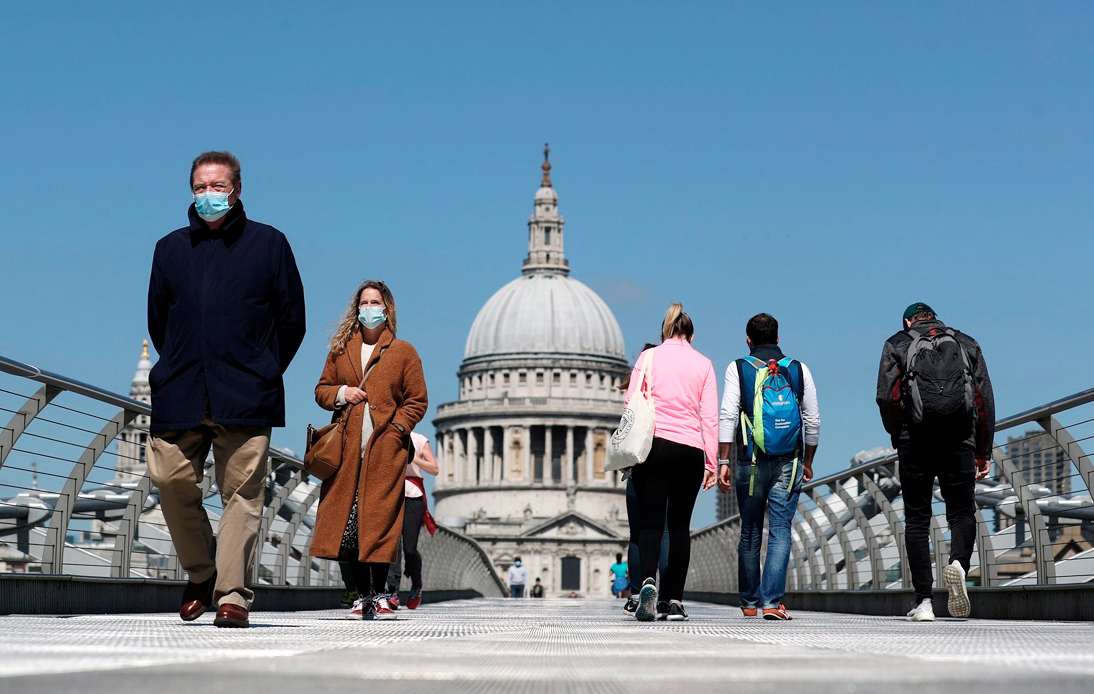
The UK is set to impose new Covid-19 measures after detecting two cases of the new Omicron variant.
Prime Minister Boris Johnson announced the additional restrictions last night, shortly after UK health authorities reported two infections with the most contagious strain in Essex and Nottingham.
While the two cases have been isolated and are related to travel to South Africa, where the variant was first detected, the UK government has decided to take forceful action to avoid its spread.
Mr. Johnson said face masks would be mandatory again to enter shops and public transport from next week. Also, all people arriving in the UK must undergo PCR testing.
If a Covid-19 infection related to the new variant is found, all the new cases’ contacts will have to be isolated even if they have been fully vaccinated.
But the prime minister said Christmas would be “considerably better” than last year, as the measures would be “temporary and precautionary.”
The UK travel red list with mandatory hotel quarantine for ten countries will be imposed again. However, Mr. Johnson clarified that stricter border controls would only go so far as to stifle the Omicron variant’s spread in the UK.
At a Downing Street press conference, he told reporters that the country needed “proportionate and targeted” measures, adding: “These are targeted measures to provide confidence and protection, and we will review these measures in three weeks to ensure they are working effectively.”
The prime minister said the exact rules would be set out by Health Secretary Sajid Javid in the coming days. However, it is unclear when mandatory PCR testing would begin.
In a press release, the Health Department said the move was part of a series of controls that would be introduced “starting next week.”
The new and potentially more contagious variant was first detected in South Africa on Wednesday. Mr. Johnson said it appeared the Omicron strain could be transmitted between people who are double vaccinated.
After South African authorities reported the first variant case, worldwide countries introduced bans and travel restrictions on travelers from southern Africa, including Germany and Italy, which already detected Omicron variant infections.




















